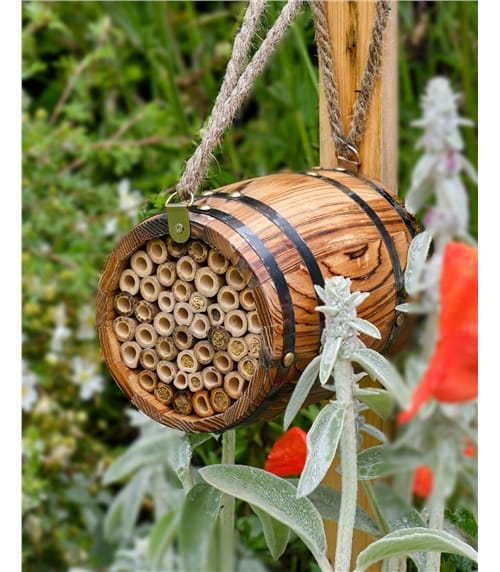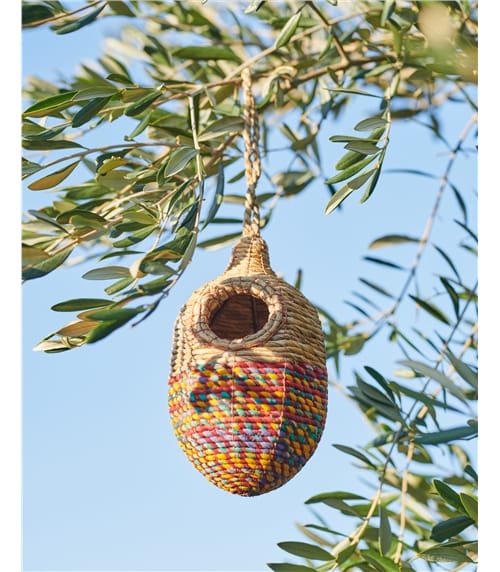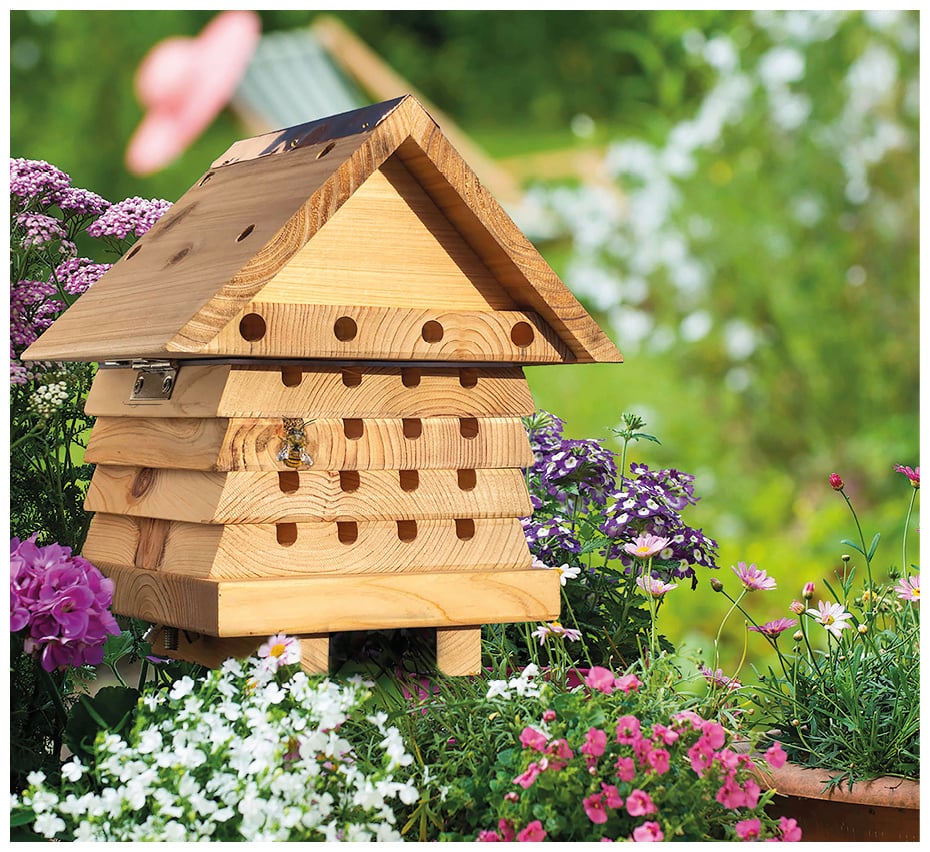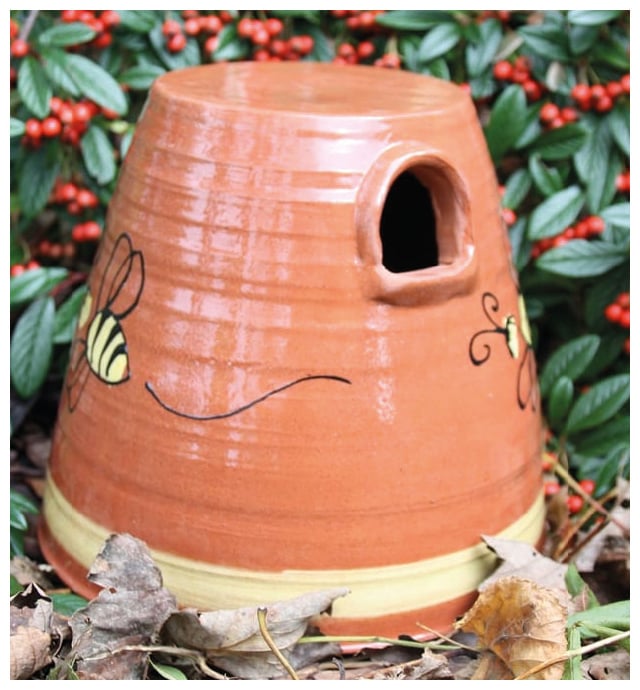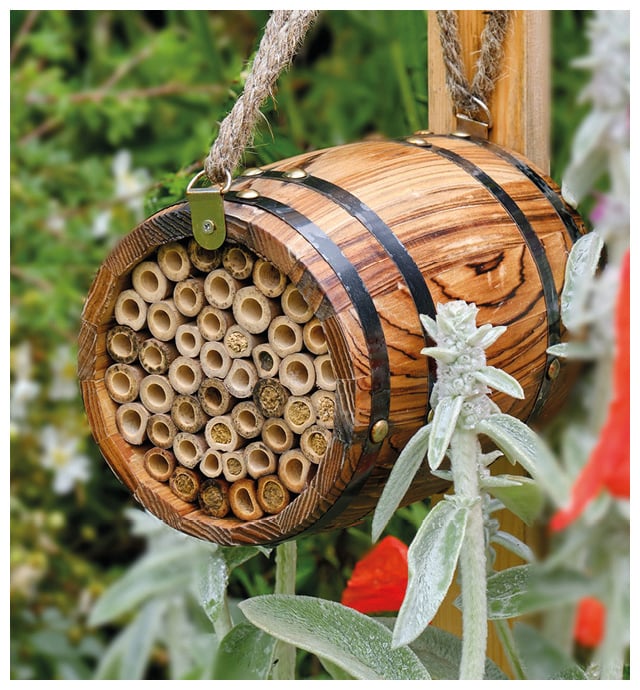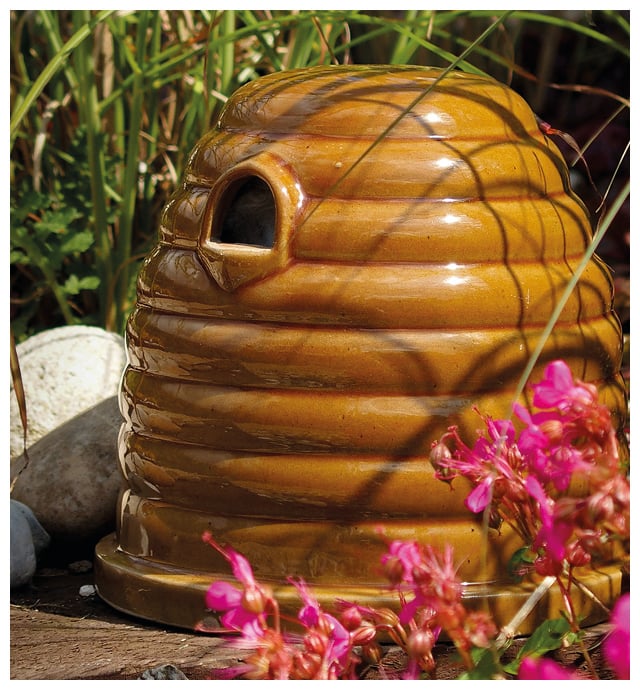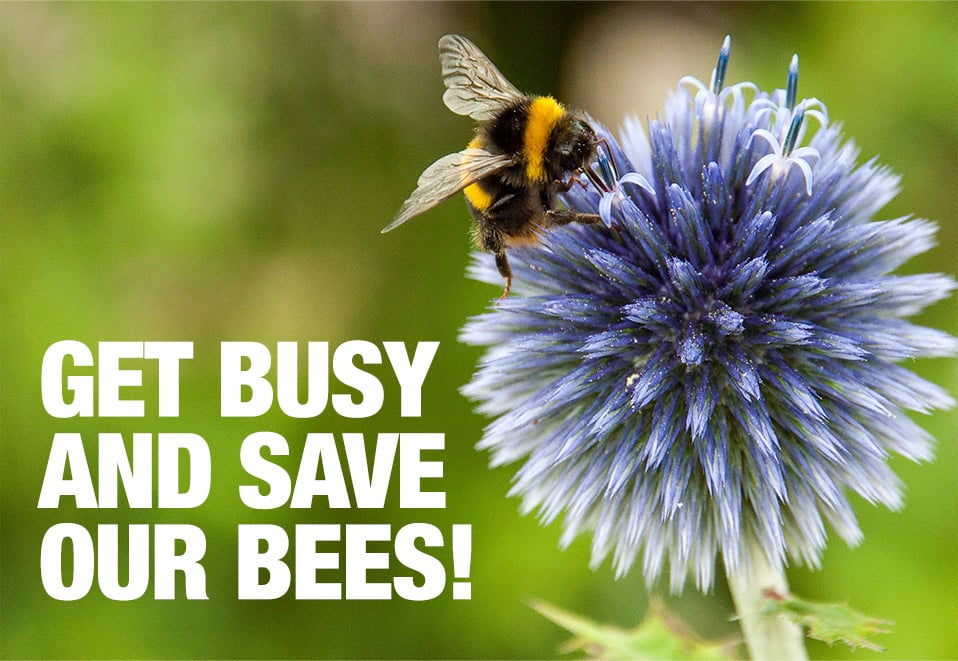
Bees are remarkable little creatures that play a vital role in our environment,
but sadly, they’re in big trouble. We have already lost around 13 species and another 35 are currently at risk.
We need to do as much as we can to protect these essential furry flyers!
Why are Bees so Important?
Bees provide us with every third mouthful we eat
It may surprise you how much we rely on these little insects. Most of the plants that provide our food depend on pollination, including broccoli, carrots, fennel, parsnips, turnips, kale, apples, raspberries, tomatoes, and of course honey!
Bees also pollinate many of the crops used for animal feed. Without them, the production of a variety of meat, egg, and dairy products would become more challenging.
Bees Sustain the Ecosystem
Bees not only provide us with food, but they also maintain the beauty and diversity of our countryside. They pollinate around 80% of wildflowers in Europe, supporting other insects, birds, bats, mammals, and everything up the food chain with food and shelter.
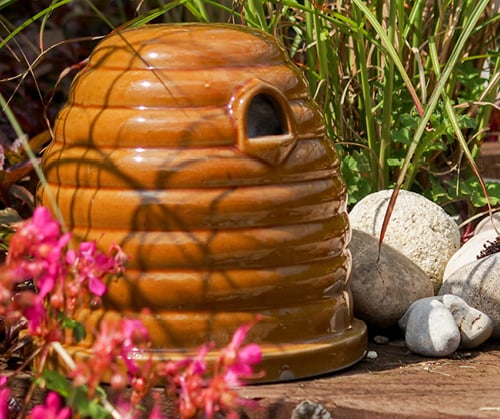
There is NO Plan Bee
Bees are vital to our food production, and their disappearance would lead to a food crisis for humanity. Without bees, supplies of some of your favourite foods would fall drastically, and many ecosystems would be affected. Animals that feed on bees would lose their food source, and plants that depend on pollination would die out.
Although hand-pollination is a possibility for most fruit and veg, it is incredibly labour-intensive and expensive. Without bees, UK farmers would have to spend a whopping £1.8 billion to pollinate crops manually!
What’s Causing Bee Decline?
Habitat Loss
Habitat loss is one major factor contributing to the decline of bees. As human development expands, bee habitats such as woods, trees, grasslands, and even gardens are being destroyed or paved over. Intensive farming methods have also had a detrimental impact on bees. Since the 1930s, an alarming 97% of wildflower meadows have been lost, depriving bees of an important food source.
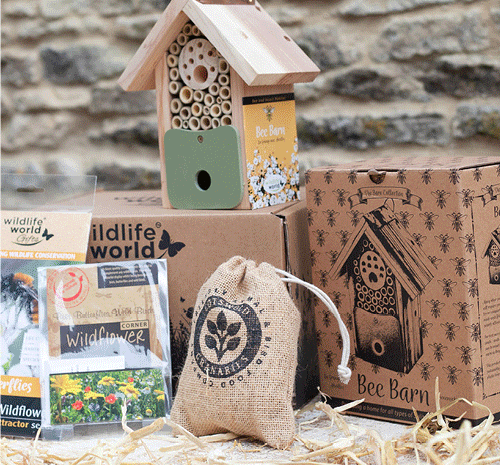
Climate Change
Climate change and its associated extreme weather patterns disrupt bee nesting behaviour and alter the timing of seasonal events. This means that flowers may bloom earlier or later than expected, affecting the availability of nectar and pollen. Planting more trees is helping to mitigate some of the effects of climate change, but it's still a serious issue that could prove deadly for many of our beloved bees.
Pesticides
Pesticides pose another significant threat to bees. While they are designed to eliminate unwanted pests, their toxic properties and widespread use harm beneficial insects like bees. One particularly harmful group of pesticides called neonicotinoids affects the central nervous system of bees. This affects tasks that bees depend on to survive such as feeding, homing, foraging and reproducing.
How You Can Help Bees
Give Bees a Home
Bees require shelter for nesting and hibernation. Give bees a helping hand by purchasing our ready-made bee hotels and nesters. Simply hang them up in a sunny, sheltered location and watch happy bees fill the tubes during spring and summer. It is essential to keep your bee hotel clean to prevent pests and mould. Take your bee hotel down in October to do a little maintenance, then hang it back up in late March/early April.
.png)
Plant Bee-Friendly Flowers
Whether you have a garden, balcony, or even a windowsill, transform it into a haven of nectar-rich, bee-friendly flowers. This provides bees with access to nectar from March to October. Bees are particularly fond of traditional cottage garden flowers and native wildflowers like primrose, foxglove, and marigolds. By doing this, you’re not only creating a beautiful feature but also helping to support bee populations. Remember, avoiding pesticides and allowing your garden to flourish naturally is the kindest choice for bees.
Revive a Struggling Bee
If you come across a bee that appears to be struggling, gently place it on a bee-friendly flower. If there are no such flowers nearby, create a mixture of 50% white sugar and 50% water. Offer a drop or two of sugar water to the bee on a teaspoon or an upturned drinks cap in a sheltered location. This will give the bumblebee a one-off energy boost, providing the carbohydrates it needs to get their buzz back!
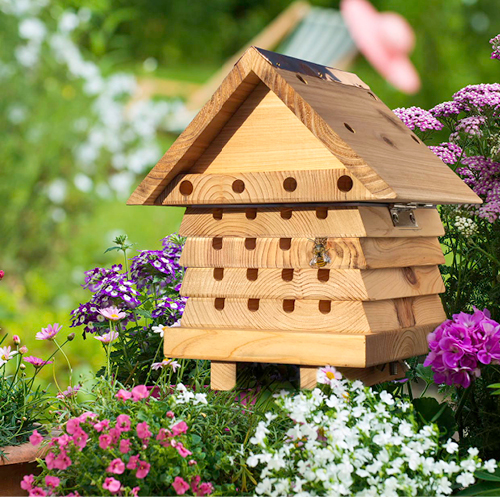
Bee Good
Shop natural skin-care from this family-run business. Their bee-based products are made using honey, beeswax and propolis, carefully harvested from their own honey bees kept in fields nearby
Home Accessories
Give your home a distinctive finishing touch with our all-natural 100% pure wool home essentials. Shop our stylish selection of bee-inspired products to celebrate how amazing these little insects are!
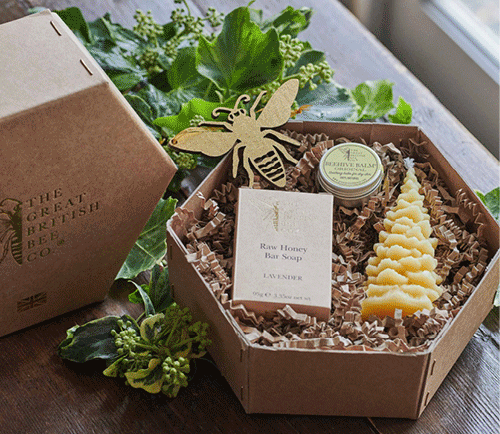
Give bees a home
For Your Home
Bee-autiful Blankets
Why are Bees so Important?
Bees provide us with every third mouthful we eat. It may surprise you how much we rely on these little insects. Most of the plants that provide our food depend on pollination, including broccoli, carrots, fennel, parsnips, turnips, kale, apples, raspberries, tomatoes, and of course honey!
Bees also pollinate many of the crops used for animal feed. Without them, the production of a variety of meat, egg, and dairy products would become more challenging.
Bees not only provide us with food, but they also maintain the beauty and diversity of our countryside. They pollinate around 80% of wildflowers in Europe, supporting other insects, birds, bats, mammals, and everything up the food chain with food and shelter. Bees not only provide us with food, but they also maintain the beauty and diversity of our countryside. They pollinate around 80% of wildflowers in Europe, supporting other insects, birds, bats, mammals, and everything up the food chain with food and shelter.
There is NO Plan Bee
Bees are vital to our food production, and their disappearance would lead to a food crisis for humanity. Without bees, supplies of some of your favourite foods would fall drastically, and many ecosystems would be affected. Animals that feed on bees would lose their food source, and plants that depend on pollination would die out.
Although hand-pollination is a possibility for most fruit and veg, it is incredibly labour-intensive and expensive. Without bees, UK farmers would have to spend a whopping £1.8 billion to pollinate crops manually!
What’s Causing Bee Decline?
Habitat Loss
Habitat loss is one major factor contributing to the decline of bees. As human development expands, bee habitats such as woods, trees, grasslands, and even gardens are being destroyed or paved over. Intensive farming methods have also had a detrimental impact on bees. Since the 1930s, an alarming 97% of wildflower meadows have been lost, depriving bees of an important food source.
Climate Change
Climate change and its associated extreme weather patterns disrupt bee nesting behaviour and alter the timing of seasonal events. This means that flowers may bloom earlier or later than expected, affecting the availability of nectar and pollen. Planting more trees is helping to mitigate some of the effects of climate change, but it's still a serious issue that could prove deadly for many of our beloved bees.
Pesticides
Pesticides pose another significant threat to bees. While they are designed to eliminate unwanted pests, their toxic properties and widespread use harm beneficial insects like bees. One particularly harmful group of pesticides called neonicotinoids affects the central nervous system of bees. This affects tasks that bees depend on to survive such as feeding, homing, foraging and reproducing.
